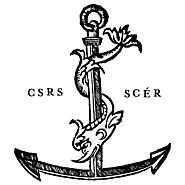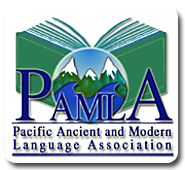-
About
- About Listly
- Community & Support
- Howto
- Chrome Extension
- Bookmarklet
- WordPress Plugin
- Listly Premium
- Privacy
- Terms
- DMCA Copyright
- © 2010-2025 Boomy Labs


 Elizabeth Elaine Tavares
Elizabeth Elaine Tavares
Listly by Elizabeth Elaine Tavares
A list of academic associations invested in questions of performance and dramaturgy in Elizabethan and early modern theatre, with especial emphasis on the American Pacific Northwest region.
Source: http://www.bitethumbnails.com

The Pacific Northwest Renaissance Society (PNRS) is an academic
organization that promotes scholarship in Early Modern Studies by
hosting an annual conference. The conference is held alternately in the
United States and Canada and is open to all scholars and graduate
students from North America.

The Simpson Center provides financial and administrative support for crossdisciplinary research, teaching, and engagement projects. Simpson Center funding sponsors a wide range of activities, including fellowships for UW faculty and doctoral students, cross-departmental research groups, scholarly conferences and symposia, and community-engaged collaborations.

The Canadian Society for Renaissance Studies is dedicated to encouraging multidisciplinary studies in the Renaissance by students and established scholars in both official languages. The Society sponsors the bilingual scholarly journal Renaissance and Reformation / Renaissance et Réforme, a thrice-yearly News with information for members, and organizes an annual meeting as part of the Congress of the Social Sciences and Humanities. The Society also annually sponsors three special awards: for Lifetime Achievement, for a paper written by a graduate student, and for a paper written by a university researcher or independent scholar.

PAMLA is dedicated to the advancement and diffusion of knowledge of ancient and modern languages and literatures. It is home to Pacific Coast Philology and an annual academic conference.
The Shakespeare Association of America (SAA) is a non-profit professional organization for the advanced academic study of William Shakespeare’s plays and poems, his cultural and theatrical contexts, and the many roles these have played in world culture.Since its founding in 1972, the SAA has held annual conferences that convene in a different location each year, generally in late March or early April. SAA members meet to exchange ideas and strategies for reading, teaching, researching, and writing about topics of shared interest. Sessions at the meeting include seminars, workshops, panel presentations, round-table discussions, film screenings, theatrical performances, and teaching workshops.

The Medieval and Renaissance Drama Society is an academic association of scholars and other persons interested in medieval and Renaissance drama whose activities include organizing annual meetings, sponsoring long-range research projects, and publishing material of interest to the Society, including the journal, ROMARD: Research on Medieval and Renaissance Drama.

Founded in 1954, the Renaissance Society of America promotes the study of the period 1300–1650. The RSA brings together scholars from many backgrounds in a wide variety of disciplines from North America and around the world. RSA has over 5,000 members at universities and colleges as professors, instructors, and graduate students; at museums, libraries, and other cultural institutions; independent scholars; and many others interested in Renaissance studies.

The Marlowe Society of America promotes scholarship on Christopher Marlowe's life, works, and crucial role in the early modern theater. The Society sponsors an international conference every five years in a location related to his life and works.

Welcome to the website of The Malone Society, an organisation devoted to textual scholarship of late-medieval and early modern drama. The Society was founded in 1906 at the initiative of A.W. Pollard, and for over a century we have published (almost) every year edited volumes of early printed and manuscript texts of both well-known and neglected plays. We also publish collections of documentary material relating to the performance and reception of early drama. Our best-known publications include W.W. Greg’s edition of Sir Thomas More, a collaborative history play to which Shakespeare may have contributed, and A.C. Dunstan’s edition of the earliest surviving original play in English to have been written by a woman, Elizabeth Cary’s The Tragedy of Mariam.
